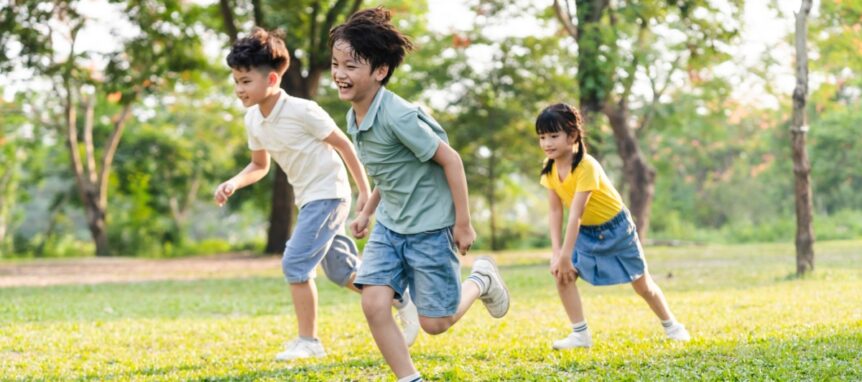Unstructured play is often overlooked in a world dominated by schedules, deadlines, and digital entertainment. However, when children are given the freedom to play outdoors without specific goals or adult direction, something remarkable happens. They begin to explore, imagine, solve problems, and connect with the world around them in deeply meaningful ways. These seemingly simple moments of free play are backed by a growing body of research showing they’re essential for healthy childhood development.
A Natural Environment for Critical Thinking
Children develop essential cognitive skills when they’re allowed to direct their own activities. In structured settings, they follow instructions and meet expectations. But in unstructured outdoor play, they decide what comes next. Should they turn a stick into a sword or a magic wand? Should they lead the group through the woods or pretend they’re explorers lost on an island? These decisions spark creativity, encourage planning, and build problem-solving skills. There’s no manual, no rulebook—just opportunities to invent and adapt.
Without predefined rules, children also learn how to cope with change and uncertainty. A game that begins with one idea may evolve into something entirely different. This flexibility strengthens cognitive resilience and the ability to think outside the box—skills that prove valuable both in academics and in life.
Building Stronger Bodies Through Natural Movement
Unlike indoor play or screen time, outdoor environments naturally encourage physical movement. Children climb over logs, balance on rocks, jump across puddles, and run freely in open spaces. These actions improve strength, coordination, and balance. Importantly, the variety of terrain found outdoors challenges the body in ways that traditional playgrounds or gyms often don’t, leading to better overall motor development.
Fine motor skills also benefit when children engage in hands-on exploration. Activities like stacking stones, weaving leaves, or collecting acorns require focus and precision, enhancing dexterity. Together, these experiences create a foundation for lifelong physical health and development.
Emotional Regulation and Mental Calm
Spending time outdoors has a calming effect on the mind. Studies show that exposure to nature reduces stress, anxiety, and symptoms of attention disorders. When children are free to explore natural spaces, their minds have room to wander. The absence of noise, screens, and constant stimulation gives their nervous systems a chance to reset.
Unstructured play also fosters emotional growth by encouraging independence. Children learn to manage frustration when something doesn’t go their way and to celebrate small victories, like successfully climbing a tree or building a shelter. These accomplishments build self-esteem and help kids develop greater emotional resilience over time.
Social Growth Without Boundaries
Children interacting in unstructured outdoor play often display improved social skills. Because there are no set instructions, they must communicate with one another to create and modify rules as they go. They negotiate roles, share resources, and solve disagreements without adult mediation.
This type of collaborative play nurtures empathy, patience, and leadership. It also builds a sense of community and cooperation that doesn’t rely on competition. In nature, children are more likely to work together to create a shared imaginative world than to compete for a high score. These experiences encourage healthy peer relationships and prepare children for group settings in school and beyond.
Imagination Rooted in Nature
Unstructured outdoor environments are rich with possibilities. A stick can become anything—a sword, a baton, a fishing pole. A pile of leaves transforms into a fort. A trail leads to a world of adventure. Nature ignites imagination because it doesn’t impose limits.
This kind of imaginative play supports language development, narrative thinking, and creativity. Children learn to tell stories, assign meaning to objects, and create entire worlds from simple surroundings. As they explore, they develop a deep appreciation for the natural world and an enduring sense of curiosity.
The Long-Term Impact of Free Outdoor Play
Children who regularly engage in unstructured outdoor play tend to be healthier, more confident, and more successful in the classroom. They’re better at managing their emotions, thinking creatively, and solving complex problems. Even just a few hours each week can yield measurable improvements in behavior, academic performance, and overall well-being.
As research continues to support the value of outdoor play, many educators and child development specialists are calling for more opportunities for children to engage with nature—freely and without rigid structure. Giving children the space to play on their own terms may be one of the simplest and most powerful ways to support their growth.
Cultivating Growth Through Free Play
At Camp Live Oak, unstructured outdoor play is embraced as a vital part of every camper’s experience. Whether children are building forts, wandering trails, or inventing new games beneath the trees, they’re developing the physical, emotional, and intellectual skills they need to thrive. To learn more about how Camp Live Oak integrates nature-based learning and free play into its programming, reach out through our contact page.

